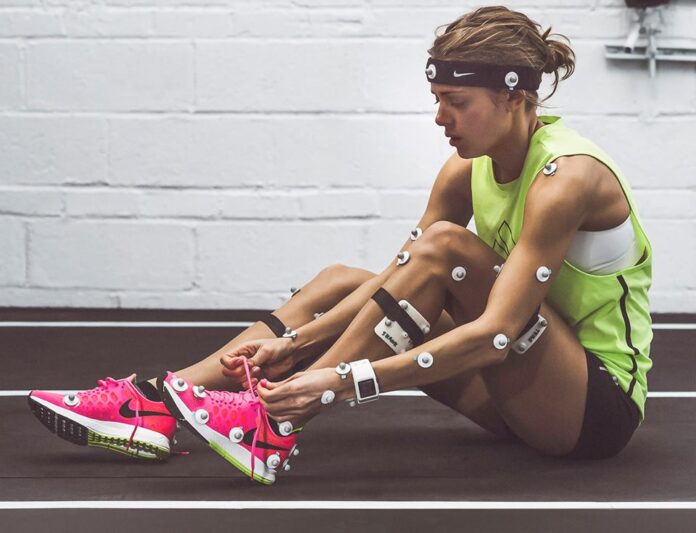The Sports Technology Labs create revolutionary changes for how athletes both train themselves and recover and perform at peak levels. These labs enable modern athletic excellence through combination of wearable devices with AI-based analytical systems which are transforming sports technology.
How Sports Technology Labs Are Revolutionizing the Game
The relationship between sports and technology has become so close that tech advances help maximize athletic performance to levels never achieved before. Sports Technology Labs achieves training optimization and injury prevention by utilizing AI systems and biomechanical analytics with data analysis tools.
The Evolution of Sports Technology Labs
- Early Innovations: Basic performance tracking and analytics.
- The field currently benefits from artificial intelligence coaching systems in combination with wearable devices and premium smart gear.
- Future Trends: Virtual reality training, genetic performance analysis, and real-time biometric monitoring.
- Cloud-based solutions function to expand data sharing platforms between athletes worldwide.
- The intersection of AI with robotics produces systems which work together with humans to assist with rehabilitation along with training tasks.
- 5G Connectivity: Real-time performance monitoring with ultra-low latency data transfer.
- The athlete benefit from AI-based voice and video feedback through Automated Coaching Assistants.
Best Sports Technology Labs – Enhancing Performance & Recovery
AI & Data Analytics in Sports Technology Labs – A Game Changer
Artificial Intelligence changes athletic training methods while it modifies competition procedures. AI-driven performance analysis provides:
- Personalized training insights.
- Injury prevention strategies.
- Real-time game performance evaluation.
- Data-driven coaching for peak optimization.
- Tactical strategy planning through AI simulations.
- AI systems produce fitness approaches customized for peak success performance goals.
- System-generated forecasts provide information about how an athlete’s physical endurance and fatigue will evolve.
- AI-powered injury diagnosis and rehabilitation strategies.
- AI-enhanced video analysis for game strategy improvements.
Wearable Tech & Sports Labs – Redefining Athlete Performance
Artificial Intelligence changes athletic training methods while it modifies competition procedures. AI-driven performance analysis provides:
- Personalized training insights.
- Injury prevention strategies.
- Real-time game performance evaluation.
- Data-driven coaching for peak optimization.
- Tactical strategy planning through AI simulations.
- AI systems produce fitness approaches customized for peak success performance goals.
- System-generated forecasts provide information about how an athlete’s physical endurance and fatigue will evolve.
- AI-powered injury diagnosis and rehabilitation strategies.
- AI-enhanced video analysis for game strategy improvements.
Smart Equipment in Sports Technology Labs – Next-Gen Training
Elaborated training technologies enable athletes to surpass their current boundaries:
- Smart basketballs and footballs with inbuilt sensors.
- High-tech running shoes for impact analysis.
- Advanced AI robots serve as training aids for dynamic workout exercises.
- The intelligent resistance bands function as strength training equipment.
- Interactive treadmills with real-world simulation.
- Technological motion detectors ensure athletes can refine their physical technique.
- Combat sport athletes benefit from punching bags that contain sensors to enhance both strength and accuracy.
- Virtual coaching powered by AI technology provides customized training sessions to individuals.
- The device offers connected dumbells which combine force detection with balance tracking.
The Role of Sports Technology Labs in Modern Training
Current athletes depend on scientific knowledge to an unprecedented extent. Sports Technology Labs offer:
- Biomechanical Analysis: Optimizing form and movement efficiency.
- Recovery Science: Advanced cryotherapy, hydrotherapy, and oxygen chambers.
- Mental Conditioning: VR simulations for psychological resilience.
- The field of nutritional science customizes dietary guidelines using information provided by patient genetic markers.
- Injury Rehabilitation: Robotic-assisted physiotherapy for faster recovery.
- Heat and Hydration Sensors serve as tools to help athletes find the most effective hydration strategies.
- Metabolic Testing: Evaluating endurance through oxygen uptake measurement.
- Smart Compression Gear: Enhancing circulation and muscle recovery.
- AI-powered Mental Health Monitoring: Tracking stress and cognitive fatigue levels.
How Sports Science & Technology Labs Are Shaping the Future
- Athletic training plans can now be developed using DNA test results from genetic testing.
- Neurofeedback Training: Improving cognitive skills and reaction times.
- Augmented Reality (AR): Real-time data visualization for better decision-making.
- Exoskeletons for Training represents AI-based wearable equipment which helps trainees with their strength development.
- The combination of machines with learning capabilities uses algorithms to analyze athletic performance potentials.
- Blockchain technology secures sports athlete data with transparent performance records while tracking athlete information for full visibility.
- Sports equipment alongside renewable-powered facilities have become essential parts of sustainable technology innovation.
- Virtual on-field coaches supported by holographic technology provide drill training to athletes.
- Aerial drone tools enable athletes to receive analysis for movement optimization while optimizing their positioning.
Top Sports Technology Labs Worldwide – Innovations in Action
- Several world-class labs are leading the way:
- Nike Sports Research Lab (NSRL): Cutting-edge sportswear innovation.
- Red Bull Athlete Performance Center: High-performance training for extreme sports athletes.
- Aspetar Sports Science & Medicine Center: Pioneering recovery and rehabilitation.
- Adidas Future Lab: Advancing smart footwear and apparel.
- MIT Sports Innovation Lab: Leading research in AI-driven sports tech.
- Catapult Sports Performance Lab: Focused on data-driven sports performance monitoring.
- Under Armour Human Performance Lab: Analyzing athlete biomechanics for next-gen gear development.
- P3 Applied Sports Science Lab: Specializing in movement efficiency and injury prevention.
- EXOS Training Lab: Elite athlete development with cutting-edge technology.
FAQs
Q1: Sports Technology Labs exists to fulfill what purpose?
Sports Technology Labs depend on scientific research along with advanced technology to maximize athletic performance and minimize injuries along with recovering athletes’ bodies.
Q2: AI together with data analytics techniques enhance the training process for sports competitors?
Performance metrics are analyzed through AI while the system predicts injuries using real-time data to develop customized training plans.
Q3:Wearable technology provides suffice reliability for athletes?
The accuracy of contemporary wearable tech delivers genuine real-time information which enables athletes to track their advancement along with modifying their training program.
Q4:Biomechanics serves how many functions in the development of sports technology?
Bioengineering runs athlete movement assessments to develop efficient operations and minimize injuries with scientific analysis.
Q5:What advantages does VR training provide to athletes during their training?
Virtual Reality training creates real-time simulation environments for athletes to develop their reaction times, spatial understanding and make better decisions on the field.
Q6:Sports technology will continue to transform how we participate in athletic competition?
Athletic performance enhancement coupled with natural resource preservation will be achieved through AI analysis systems and eco-friendly wearable devices and brain feedback tools in the future.
Q7:Blockchain technology introduces what impacts sports analytics?
Draghics employs blockchain technology to safeguard data records while ensuring complete transparency and preserving decentralized performance authentication which prevents tampering of records.
Q8:Sports technology labs provide tools to support mental condition development?
The combination of AI-based cognitive training together with VR simulations and stress-monitoring wearables has made mental conditioning the main priority for preparing elite athletes.
The work of Sports Technology Labs advances current limits of athletic performance outcomes. Sports technology innovation will provide athletes with improved tools to train with enhanced intelligence simultaneously with accelerated recovery abilities and maximum performance levels.

